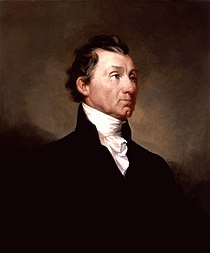Historians have observed that while the Doctrine contained a commitment
to resist colonialism from Europe, it had some aggressive implications
for American policy, since there were no limitations on the US's own actions
mentioned within it. Scholar Jay Sexton notes that the tactics used to
implement the doctrine were "modeled after those employed by British imperialists" and their competition with the Spanish and French.[48] Eminent historian William Appleman Williams described it as a form of "imperial anti-colonialism."[49]
Noam Chomsky argues that in practice the Monroe Doctrine has been used as a declaration of hegemony and a right of unilateral intervention over the Americas.[50]

